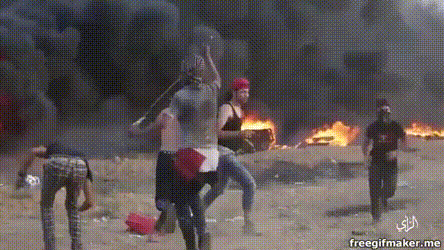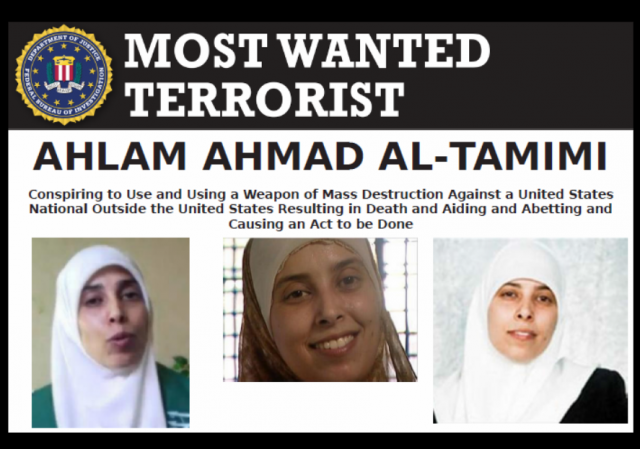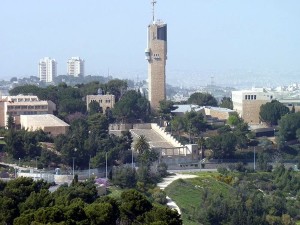In dramatic sign of warming ties, Netanyahu makes secret visit to Oman
Prime Minister Benjamin Netanyahu made a secret visit to the Gulf nation of Oman on Friday — the first by an Israeli leader in over two decades, and a sign of warming ties between the Jewish state and the Sunni Arab world.
On Friday afternoon, his office surprisingly announced that Netanyahu and his wife Sara had just returned from an “official diplomatic visit” to Muscat, during which they met with Sultan Qaboos bin Said al Said.
“The Prime Minister’s visit is a significant step in implementing the policy outlined by Prime Minister Netanyahu on deepening relations with the states of the region while leveraging Israel’s advantages in security, technology and economic matters,” his office said in a statement.
The last visit by an Israeli leader to Oman took place in 1996, when Shimon Peres visited.
The Netanyahus were invited to Oman by the sultan, who has been ruling the Gulf state since 1970, “after lengthy contacts between the two countries,” the statement said.
A joint statement issued by Jerusalem and Muscat said the two leaders discussed “ways to advance the peace process in the Middle East as well as several matters of joint interest regarding the achievement of peace and stability in the Middle East.”
Netanyahu and his wife were accompanied to Muscat by Mossad Director Yossi Cohen, National Security Adviser Meir Ben-Shabbat, Foreign Ministry Director-General Yuval Rotem, the head of the Prime Minister’s staff, Yigal Horowitz, and the Prime Minister’s Military Secretary, Brig.-Gen. Avi Bluth.
PM Netanyahu returned from an official diplomatic visit to Oman where he met with Sultan Qaboos bin Said.— PM of Israel (@IsraeliPM) October 26, 2018
This visit is a significant step in implementing the policy outlined by PM Netanyahu on deepening relations with the states of the region while leveraging Israel's advantages pic.twitter.com/basy7da7JS
This is a conflict over narratives. Israel needs to tell ours to Palestinians.
Yossi Klein Halevi is senior fellow at the Shalom Hartman Institute in Jerusalem and the author of the recent New York Times bestseller, ‘Letters to my Palestinian Neighbour’. In conversation with Fathom deputy editor Calev Ben-Dor, he sets out the main themes of his book: the need for both sides need to stop the war on the legitimacy of each other’s narrative, and the need for a radically new kind of Israeli-Palestinian conversation about the conflict based on respect and deep mutual recognition.
Telling our story
My book originated in the 1990s when I undertook a year-long journey into Palestinian society, specifically into its religious life, going to mosques and monasteries looking for shared devotional language with my neighbours. I was exposed to the Palestinian narrative and to Palestinian stories which deeply moved me and helped shape my thinking about the conflict. And in this book I’m asking my neighbours to hear my story – not through a tit-for-tat argument, but because minimal respect of the right of each side to tell its story is, I believe, a prerequisite for peace. This isn’t primarily a conflict over tangible issues like borders and settlements – those are the consequences of a deeper conflict over narratives. We’ve been fighting a hundred-year war of clashing narratives.
I felt the time had come for someone on the Israeli side to try to explain our story to our neighbours, to tell a story about who we are. So I told my own story – an American-born Jew who moved to Israel as part of a people returning home to a land that has been at the centre of its identity for 4000 years.
The book also came out of the realisation that the other side doesn’t know our story. The Palestinian media and school system overwhelmingly convey the message that Israelis and the Jewish people are not only thieves but also liars. They say we’ve invented our story, or that we have no story. That’s the message Palestinians receive on a daily basis. A young man in Hebron, the city with the longest Jewish history of any city anywhere, once told me that there were no Jews in the city until after 1967. But he was simply repeating what he’d been told his whole life.
One part of the Jewish community defends the Israeli, Zionist narrative which is under growing assault. Another part of the Jewish community defends the two-state solution and the hope for peace. The implicit premise of my book is that both these approaches are necessary and, more, they are complementary. If we don’t defend the integrity of the Israeli story and the legitimacy of the Jewish presence here, we’ll never reach peace. If the other side is convinced we have no story or roots here – which is what they hear over and over – peace will not be possible. How do you make peace with a non-existent illegitimate people?











































